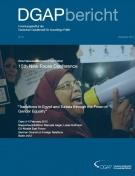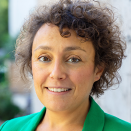Women in Egypt and Tunisia were at the forefront of their countries’ revolutions condemning the corruption of their regimes and demanding freedom, justice, and democracy. As citizens they were fighting side by side with men encouraging others through their presence to join the protests. However, one year after the fall of the countries’ presidents, expectations concerning the improvement of gender equality in both states have been disappointed. The issue of women’s empowerment was/is sidelined in the political debate, and women’s political representation in the newly elected parliaments and constitutional assemblies/committees respectively is very insignificant.
The 15th New Faces Conference conceptualized and organized by the EU—Middle East Forum at the German Council on Foreign Relations brought together 17 young professionals from academia and civil society in order to discuss the transitions in Egypt and Tunisia with regard to gender equality and women’s empowerment. The conference did not aim to offer a tour d’horizon of deficits in gender equality in Egypt and Tunisia in all facets of society and how to address these. It rather sought to pinpoint challenges and necessary action particularly during the current political transition, hence the focus on the political realm and related social factors such as tradition and culture. Together with senior experts participants analyzed the current political and social situation of women in both countries and, taking into account experiences and challenges in Morocco and Turkey, discussed lessons learned and future strategies to enhance gender equality and political participation of women in both post-revolutionary countries.
This report outlines a considerable part of the participants’ contributions and discussions during the plenary sessions and working groups. The main points raised are clustered around three actors, namely the state, civil society, and the international community. The following section 2. contains the major findings of the conference.

